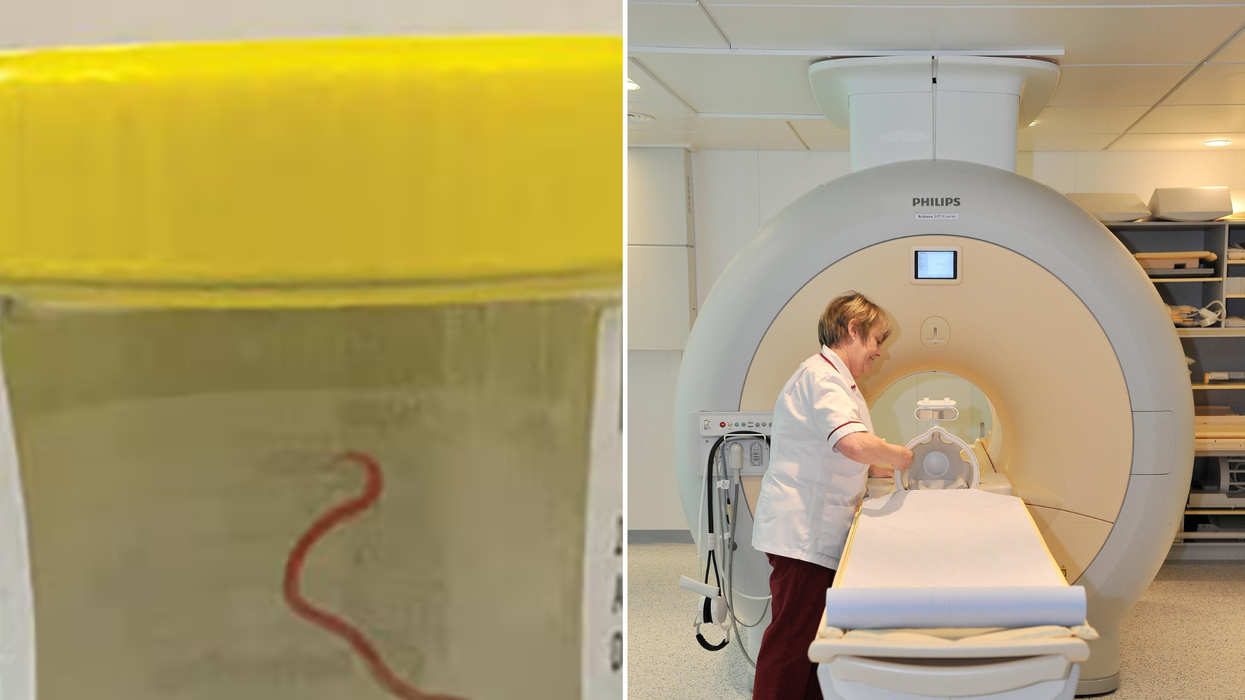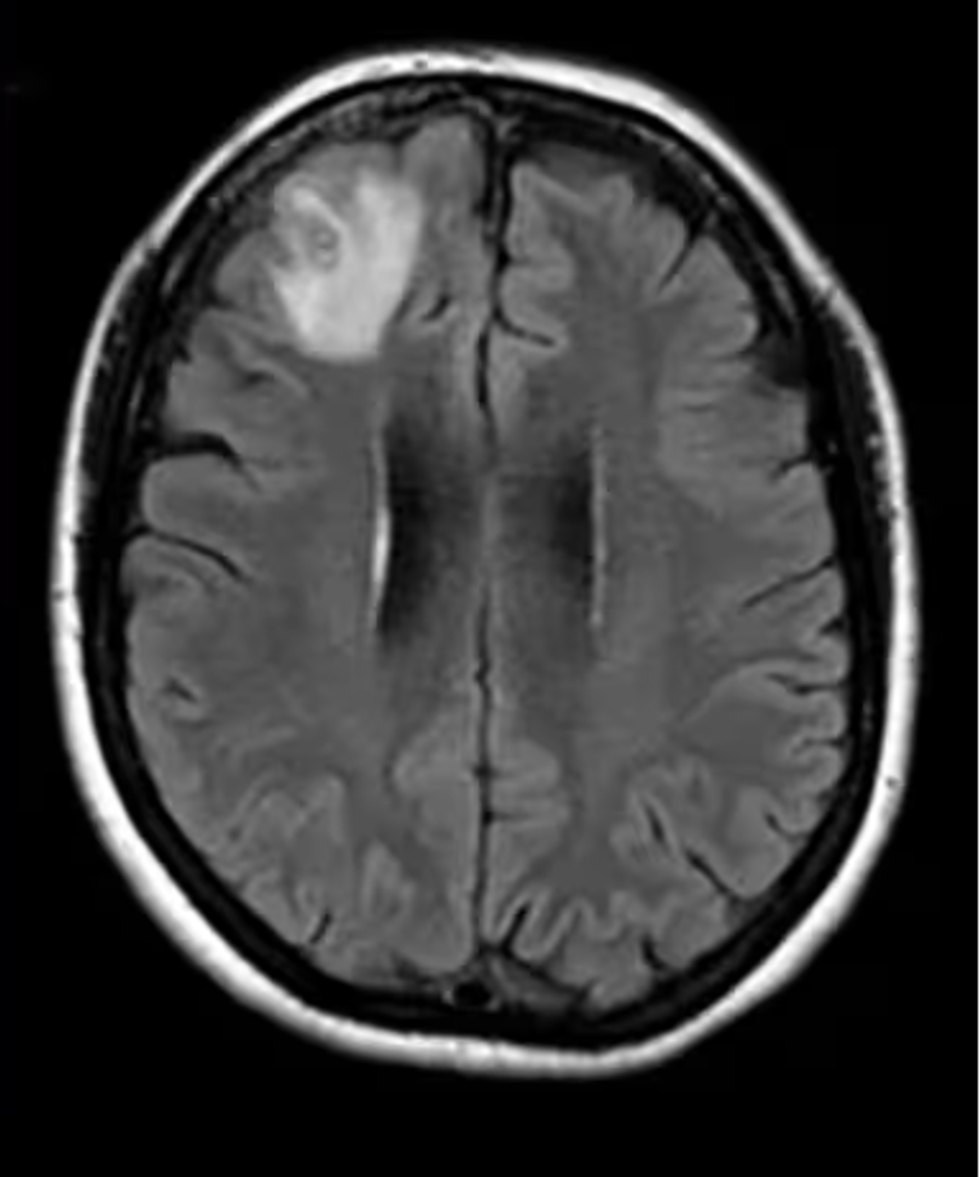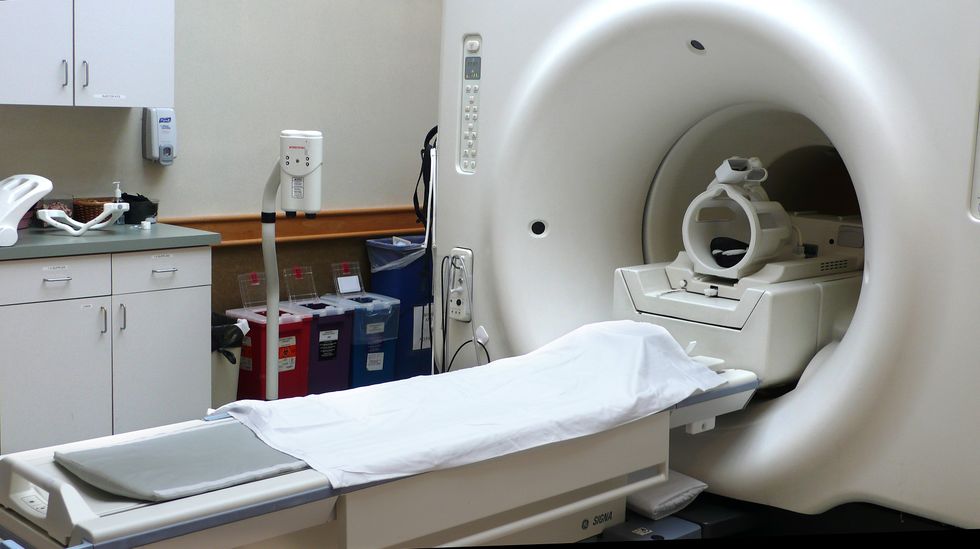'Oh my God!' Surgeon in disbelief after removing wriggling 8cm worm from woman's brain

The 8cm worm left surgeons at Canberra Hospital shocked
|Canberra Health/PA

The patient marks the world-first case of the parasite being found in humans, leaving surgeons 'shocked'
Don't Miss
Most Read
Surgeons in Australia were left shocked after they removed an 8cm parasitic worm that was living inside a woman’s brain.
The Australian woman had symptoms such as forgetfulness and stomach pain for more than 2 years before the worm was discovered.
Surgeons at Canberra Hospital could not believe what the cause was: “Oh my God, you wouldn’t believe what I just found in this lady’s brain,” Dr Hari Priya Bandi told colleagues.
The 64-year-old patient was first admitted to hospital in January 2021, complaining of abdominal pain and diarrhoea, followed by a dry cough and a fever.

The 64-year-old's MRI scan results
|Canberra Health
By 2022, her symptoms increased to include forgetfulness and depression. This led to her being referred to Canberra Hospital for an MRI scan.
Dr Sanjaya Senanayake, an infectious disease physician at Canberra Hospital, said the neurosurgeon operating on the patient “certainly didn’t go in there thinking they would find a wriggling worm”.
“Neurosurgeons regularly deal with infections in the brain, but this was a once-in-a-career finding. No one was expecting to find that,” he continued.
The medical staff sent the 8cm worm to a laboratory, where an expert from the Commonwealth Scientific and Industrial Research Organisation identified it as an ophidascaris robertsi.
This type of worm is usually found in reptiles such as pythons.
The discovery of the worm in the woman is the first instance of the parasite being found in human beings.
Dr Senanayake said the brain biopsy was suspected to show a cancer or an abscess.
“This patient had been treated … for what was a mystery illness that we thought ultimately was an immunological condition because we hadn’t been able to find a parasite before and then, out of nowhere, this big lump appeared in the frontal part of her brain,” he said.
“I just thought ‘What is that? It doesn’t make any sense. But it’s alive and moving’,” Dr Bandi told The Canberra Times newspaper.
SHOCKING HEALTH NEWS

Doctors thought the brain biopsy would show a a cancer or an abscess.
|Wikimedia Commons
“It continued to move with vigour. We all felt a bit sick”.
The 64-year-old lives near a lake which is inhabited by carpet pythons and whilst she has had no direct contact with snakes, she often forages for native vegetation to cook.
The worm’s eggs are normally shed in snake droppings which are then eaten by smaller animals.
Scientists believe that she had consumed the eggs from the plants or from her contaminated hands.
“That poor patient, she was so courageous and wonderful,” Dr Senanayake said.
“You don’t want to be the first patient in the world with a roundworm found in pythons and we really take our hats off to her. She’s been wonderful.”
The woman is still being regularly monitored but is recovering well, according to the Australian National University.










